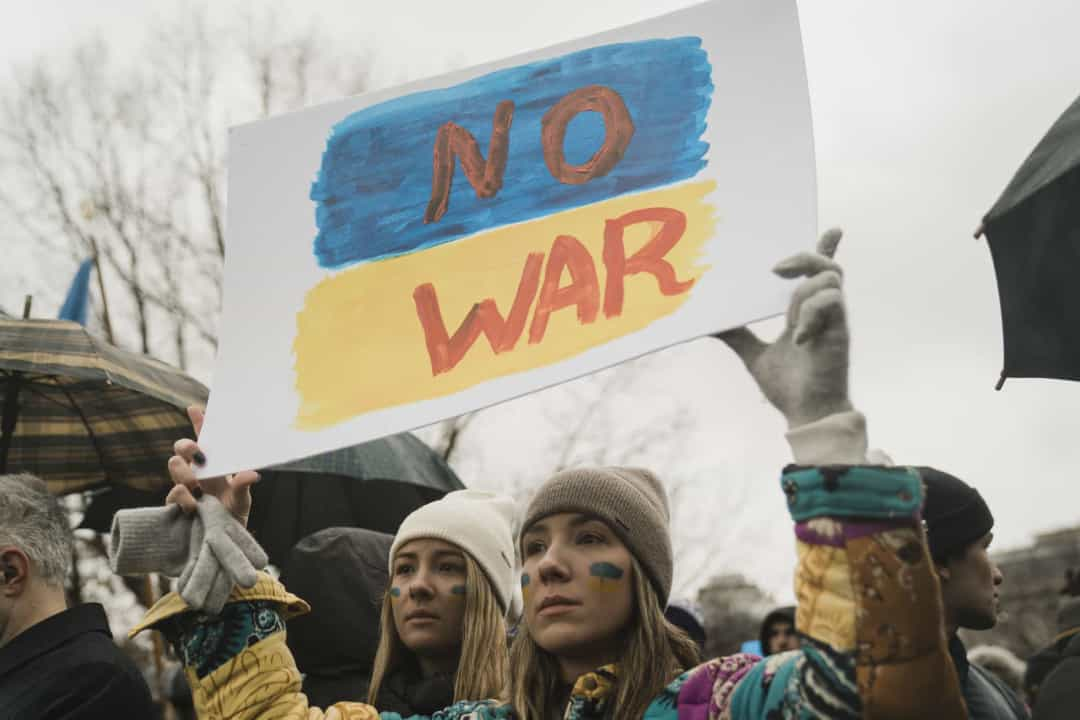This article originally appeared in TOI

Another arms race will divert resources Another arms race will divert resources from poverty, pandemic and environment crisis.
In response to Russia’s invasion of Ukraine, Tesla CEO Elon Musk recently called on the US to increase its domestic oil and gas production to cut-off imports from Russia.
While new oil and gas wells in the US might not negatively impact Tesla, Musk’s call has undoubtedly given an impetus to oil and gas interests. After all, who could be the best ambassador of fossil fuels in present times than a self-professed climate champion like Musk?
Derailing green commitments
Since the Paris Agreement, there has been much domestic and international pressure on developed countries to reduce fossil fuel production and consumption to combat the climate crisis. While some European countries have put a moratorium on new mines and wells, others have announced targets to end fossil fuels. For example, Germany is phasing out coal by 2038, Denmark has ended all new oil and gas exploration in the North Sea, and Ireland and Spain have banned new oil and gas wells. US President Joe Biden has also promised to end new drilling on federal land. However, the Russian aggression has given fossil fuel interests an excuse to demand a reversal of these policies.
But responding to their demand will be highly detrimental for climate action. According to the International Energy Agency, to meet net zero emissions by 2050, exploitation and development of new oil and gas fields must stop immediately. Moreover, opening new coal mines and oil and gas wells in Europe and the US will mean that these countries, historically the largest climate polluters, will not be able to decarbonise their economies fast enough to meet the 1.5°C goal. This, in turn, will prompt other major fossil fuel producers like Saudi Arabia to shelve their oil and gas phase-down plans; countries like India and China will also curb their climate ambition.
Therefore, the Russia-Ukraine conflict will potentially delay the implementation of the Paris Agreement by a few years by postponing the decarbonisation plans of countries. Most worryingly, it could completely derail the momentum on climate actions by exacerbating global discord and shifting government expenditures to defence.
Another arms race in the making
The world already spends too much money on defence. According to Janes – an open-source defence intelligence agency – the global defence spending rose by 1.9% in 2020 and reached $1.93 trillion. In fact, the current annual global defence budget is sufficient to meet half of the clean energy investments required to reach net zero emissions by 2050. But there are clear indications that the present crisis will boost spending on arms and ammunition in 2022 and beyond.
Germany has tripled its defence budget to $160 billion in the wake of the Russian invasion and will raise it to 2% of GDP by 2024. The other non-US Nato members are also likely to ramp up their spending to 2% of GDP, collectively increasing their defence spending by $100 billion annually. Ironically, $100 billion is what developed countries had promised developing countries as climate finance but have struggled to fulfil it.
The US, which alone accounts for about 40% of worldwide defence spending, will also hike its budget. To counter the US, China has already announced an increase in spending by 7.1% this year. To counter China, Japan plans record spending in 2022, and India’s 2022-23 defence budget ($70.2 billion) is almost 10% above the initial allocation in 2021-22. Therefore, we are most likely entering a new phase of the arms race, which will disrupt all developmental and environmental plans that the world ought to be focussing on.
We sink or swim together
The wars of the 21st century have far-greater ramifications than previous ones. In a highly interconnected and interdependent world, a regional conflict like Russia-Ukraine might jeopardise the global collective action on the climate crisis, which we only have 10 years to solve. It could delay the world’s recovery from Covid by hindering the vaccination drive for 40% of the global population who are not yet fully vaccinated.
We, therefore, can’t afford wars and another global arms race. Hence, it’s in the interest of all to ensure that conflicts are resolved by peaceful means. It’s no more a fanciful idea to push for a global moratorium on defence spending so that we can redirect resources to address real and urgent problems facing the world.
The writer is CEO of the International Forum for Environment, Sustainability and Technology (iFOREST)
Chandra Bhushan is one of India’s foremost public policy experts and the founder-CEO of International Forum for Environment, Sustainability & Technology (iFOREST).
